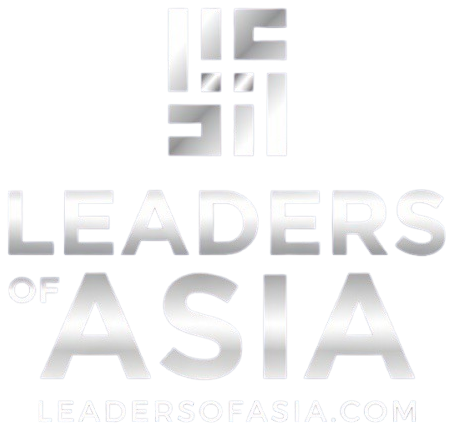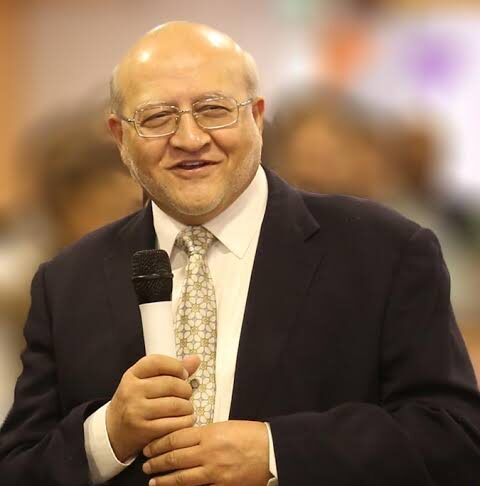Hussain Dawood: Architect of Industry and Impact in Pakistan
Introduction
Hussain Dawood stands as one of Pakistan’s most accomplished industrialists, visionaries, and philanthropists. With a career that bridges business strategy and societal transformation, he has played a pivotal role in shaping Pakistan’s economic narrative and philanthropic landscape. His influence extends beyond corporate boardrooms into classrooms, healthcare systems, and public policy circles. Over six decades of public and private engagement, Dawood has emerged not just as a business leader but as a national institution-builder whose legacy continues to define responsible leadership in the 21st century.
Early Life and Education
Family Roots and Memon Legacy
Born on September 20, 1943, in Bombay, British India, Hussain Dawood belonged to the prominent Memon community—widely known for its entrepreneurial acumen and emphasis on ethical commerce. His father, Ahmed Dawood, was already a respected figure in business and philanthropy, laying the foundation for what would later become the Dawood Group.
The family relocated to Karachi after the Partition of India in 1947, where Ahmed Dawood rebuilt his business empire from scratch in the newly established Pakistan. This move introduced young Hussain to a world where resilience, reinvention, and responsibility were the cornerstones of survival and success.
Education and Global Exposure
Hussain Dawood’s academic journey is marked by a blend of scientific rigor and business sophistication. He earned a bachelor’s degree in metallurgy from the University of Sheffield in 1966, a discipline that instilled in him the principles of structure, resilience, and innovation.
To refine his business perspective, he pursued an MBA from the Kellogg School of Management, Northwestern University, graduating in 1968. These institutions, rooted in analytical thinking and ethical leadership, played a formative role in developing his strategic mindset and global orientation.
Early Career and Entry into Business
Returning to Pakistan after his education, Dawood entered the family business, assuming the role of Finance Director in the 1970s. His early work focused on restructuring operations, improving governance mechanisms, and identifying areas for diversification. It was during this period that he laid the groundwork for the transformation of Dawood Hercules Chemicals Limited, which would later evolve into a key player in Pakistan’s industrial development.
Transforming Dawood Hercules Corporation
From Chemicals to Conglomerate
In 1981, Dawood took the helm as CEO of Dawood Hercules, a company primarily focused on fertilizer production. Under his leadership, the organization transitioned from a single-industry firm into a diversified investment holding company, with interests spanning chemicals, power generation, and infrastructure.
Dawood emphasized corporate governance, risk management, and long-term sustainability—prioritizing investments that could withstand political and economic volatility. This approach was both innovative and prudent in Pakistan’s often unpredictable economic environment.
Innovation and Strategic Investment
His stewardship was marked by:
- Shifting to a holding model that allowed for flexibility and capital mobility.
- Investing in energy at a time when Pakistan faced chronic shortages.
- Prioritizing sustainability through energy-efficient technologies and governance frameworks.
This transformation mirrored global trends in responsible capitalism and marked Dawood as one of the few Pakistani business leaders aligned with international ESG (Environmental, Social, Governance) practices even before they became mainstream.
Engro Corporation: A New Era of National Impact
Acquiring Engro
In the late 1990s, Dawood played a central role in acquiring a majority stake in Engro Corporation, a former subsidiary of ExxonMobil. This was a bold move that involved intense negotiation, strategic planning, and a deep commitment to national development. At the time, Engro was a respected but niche fertilizer company. Under Dawood’s chairmanship, it evolved into one of Pakistan’s largest and most diversified conglomerates.
Sectoral Expansion
Engro’s portfolio under his leadership expanded dramatically:
- Energy: Establishment of Pakistan’s first LNG terminal, which today supplies 15% of the country’s natural gas needs.
- Food & Agriculture: Launch and success of Engro Foods, improving food security and dairy supply chains.
- Petrochemicals: Strategic investments in polypropylene and PVC to reduce Pakistan’s import dependence.
- Telecommunications & Infrastructure: Launch of Enfrashare, focused on fiber optics and 5G infrastructure.
This shift reflected not only business acumen but a national vision: to build industries that addressed Pakistan’s most urgent needs—energy security, food resilience, and digital infrastructure.
Philanthropy and The Dawood Foundation
A Parallel Mission
For Hussain Dawood, philanthropy is a core mission, not an afterthought. His model of giving focuses on long-term capacity building rather than short-term charity.
Founded in 1960 by his father, The Dawood Foundation (TDF) was revitalized under Hussain’s leadership. He expanded its scope beyond traditional charity, targeting:
- STEM education
- Community healthcare
- Climate awareness and sustainability
TDF initiatives like the MagnifiScience Centre in Karachi reflect a commitment to public engagement, scientific curiosity, and equitable access to education.
KSBL: Building Future Leaders
Perhaps his most ambitious educational initiative is the Karachi School of Business and Leadership (KSBL), launched in collaboration with the University of Cambridge. KSBL embodies Dawood’s belief in leadership rooted in local realities but capable of global competitiveness.
The school’s curriculum emphasizes ethics, innovation, and strategic thinking—traits that define Dawood himself.
The Hussain Dawood Pledge: A Model for Crisis Philanthropy
When the COVID-19 pandemic hit Pakistan in 2020, Dawood announced a Rs. 1 billion pledge through personal and corporate resources.
The funds were distributed across four key areas:
- Disease Prevention: Supporting research, awareness, and medical infrastructure.
- Protection of Frontline Workers: Supplying PPE and medical tools.
- Patient Care: Funding critical care units and emergency support.
- Sustainable Livelihoods: Supporting daily wage earners and small enterprises.
Institutions like Indus Hospital, Shaukat Khanum Hospital, and the Ehsaas Program were among the main beneficiaries. The initiative became a case study in targeted, collaborative, and transparent philanthropy.
Personal Life and Resilience
Family
Hussain Dawood is married to Kulsum Dawood, a philanthropist in her own right. They have four children: Azmeh, Shahzada, Sabrina, and Samad. The family has long been known for its privacy, humility, and public service.
Tragedy and Strength
In June 2023, the world mourned with the Dawood family as Hussain’s son, Shahzada, and grandson, Suleman, were tragically killed in the Titan submersible disaster. Despite the overwhelming grief, Dawood’s dignified response reminded the nation of the inner strength that defines true leadership.
His public statements during the tragedy emphasized faith, gratitude, and a renewed commitment to service—an attitude that deeply moved the nation and international observers alike.
Recognition and Awards
Hussain Dawood’s decades-long service has been recognized both domestically and globally.
- Hilal-e-Imtiaz (2024): Awarded by the President of Pakistan for exceptional contributions to philanthropy, education, and industrial development.
- Order of Merit of the Italian Republic (2008): Recognized for advancing international economic cooperation.
- Numerous accolades from industry chambers, academic institutions, and civil society groups.
These awards underscore his rare dual identity as both a business titan and a humanitarian trailblazer.
Leadership Philosophy
Strategic Vision
Dawood believes in long-term, systems-based thinking. His investments are guided by national imperatives—energy security, education reform, and digital infrastructure.
Ethical Capitalism
He advocates for a form of capitalism that measures returns in both financial and social capital. This philosophy has influenced the way many Pakistani corporations now approach CSR.
Nation Building Through Industry
Whether through Engro’s LNG terminal or KSBL’s leadership programs, Dawood views the private sector as a vital contributor to national development, not just profit-making.
Legacy and Continuing Impact
Hussain Dawood’s legacy is multifaceted:
- He transformed business structures to withstand external shocks and deliver consistent national value.
- He mainstreamed philanthropy as a strategic and collaborative endeavor.
- He created institutions—not just companies—that will outlast his personal involvement.
- He mentored a generation of leaders who carry forward his values of integrity, service, and excellence.
Conclusion
Hussain Dawood’s story is one of vision, resilience, and deep-rooted responsibility. From reshaping industries to empowering communities, from leading conglomerates to supporting pandemic relief, he has exemplified what it means to lead with purpose.
As Pakistan grapples with evolving economic and social challenges, Dawood’s model of integrated leadership—where commerce and compassion coalesce—offers a timeless template for sustainable progress. His journey is not merely a biography but a blueprint for future generations of leaders who wish to serve both market and society with equal integrity.






